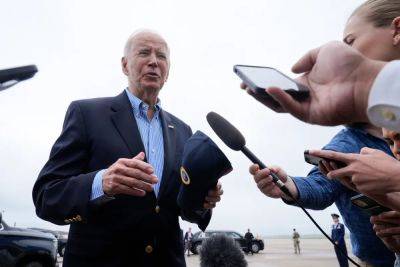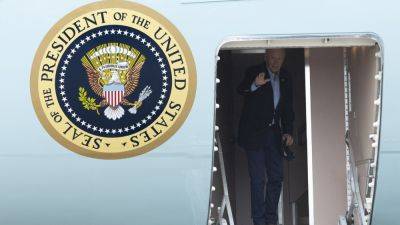Oil Price Jumps After Biden Says ‘Discussing’ Israeli Strike on Iranian Facilities
Oil prices jumped on Thursday, after President Biden, when asked if he would support an Israeli strike on Iran’s oil facilities, said: “We’re discussing that. I think that would be a little … anyway.”
The market moves reflected continued nervousness about a potential Israeli military retaliation against Iran, which launched a barrage of missiles across Israel on Tuesday, doing little damage but increasing fears of an all-out war in the region.
Oil prices rose more than 4 percent on Thursday, with Brent crude, the global benchmark, climbing above $77 a barrel for the first time in a month after Mr. Biden’s remarks. Before the missile attack, Brent was trading at just above $71 a barrel.
Prime Minister Benjamin Netanyahu of Israel said after Iran’s attack on Tuesday that Tehran had “made a big mistake — and it will pay for it.”
When asked if he would allow Israel to retaliate against Iran, which said it had launched the missiles in retaliation for the assassinations of leaders of Hamas and Hezbollah, its proxies, Mr. Biden said: “First of all, we don’t ‘allow’ Israel. We advise Israel. And there is nothing going to happen today.”
Iran is a major oil producer, pumping about two million barrels a day, or about 2 percent of the world’s supply. Its production and sales are hampered by international sanctions, and most of its exports are bought by China.
The intensifying fighting between Israel and Iran and Iranian-backed groups, especially Hezbollah in Lebanon, has pushed up oil prices this week. The main concern is that the escalating conflict could prompt Tehran to try to restrict the flow of oil from key exporters like Saudi Arabia and the United Arab Emirates.
Prices haven’t climbed back to their peaks this year, however, because







